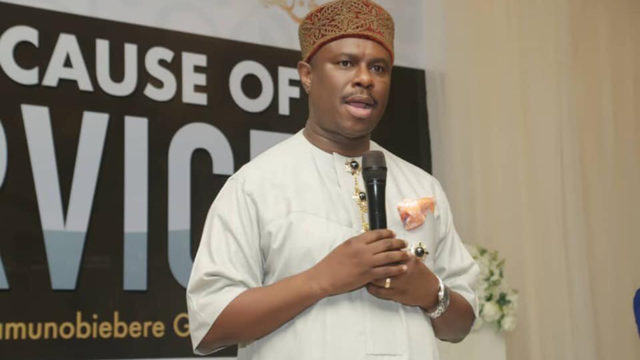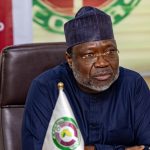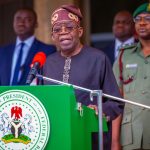When a policy fails to factor in public response to its benefits and drawbacks, success takes the backseat. Ignoring public behaviour often results in poor implementation and unintended consequences. In Nigeria, a nation grappling with complex and diverse security challenges, the limitations of centralised policing have become glaringly evident.
Rising crime rates, from terrorism and banditry to cybercrime and kidnapping, expose the inadequacies of the current federal system. The call for state police is not just a matter of political discourse; it is a necessary step toward securing the lives and property of Nigerians. This proposal has gained unprecedented traction across regional and political divides, signalling that the time is ripe for this crucial reform. The urgency of decentralising policing by introducing state police could provide the much-needed local focus to counter insecurity while fostering accountability and community trust. This vision aligns with global best practices and offers hope for a safer and more prosperous Nigeria, where localised and specialised law enforcement can effectively address the diverse security needs of the population.
Throughout history, nations have recognised the need for adaptable and localised law enforcement structures. In the early 20th century, the United States established state police forces to address rising crime and extend law enforcement beyond the capabilities of local authorities. The Pennsylvania State Police, formed in 1905, became the first uniformed state law enforcement agency in the U.S., designed to handle challenges that local sheriffs and municipal officers could not adequately address. This included labour unrest in coal mines and maintaining order in rural areas without sufficient local law enforcement. Over time, state police forces such as the Texas Rangers and California Highway Patrol expanded their scope, dealing with issues from highway safety to organised crime. These forces were pivotal in ensuring law enforcement matched the complexities of an industrialising and urbanising society.
The U.S. experience provides a critical lesson for Nigeria: decentralisation enhances law enforcement’s ability to respond to local needs. For instance, during the Prohibition era, state police units were instrumental in curbing illicit alcohol trade in their jurisdictions, a task federal authorities alone needed help to handle effectively. Similarly, the adaptability of state police allowed them to pioneer specialised units, such as cybercrime task forces in recent decades, which have become crucial in tackling modern criminal activities. Nigeria’s security challenges, including insurgencies in the North and urban crimes in Lagos and Abuja, could greatly benefit from similar localised and specialised approaches. For instance, a state police unit in Lagos could prioritise urban crimes such as theft and traffic-related offences, while a unit in Borno might focus on counterterrorism efforts against Boko Haram insurgents. This targeted approach could lead to more effective solutions than a one-size-fits-all federal system.
Globally, decentralised policing systems offer valuable lessons. Countries like Canada, India, and South Africa demonstrate how local accountability and responsiveness enhance security. Canada’s provincial police forces work collaboratively with municipal and federal agencies to address diverse security needs. In India, state police forces are indispensable in combating localised crimes and maintaining law and order, especially in states with unique cultural and geographical contexts. For example, Maharashtra’s state police in India have implemented technology-driven initiatives to combat cybercrime, which would be impossible under a rigid centralised system. These systems are bolstered by robust oversight mechanisms to prevent misuse, ensuring their effectiveness and integrity. Nigeria can draw inspiration from these examples, adapting these practices to suit its unique challenges. This global perspective further strengthens the argument for the state police proposal in Nigeria.
The current structure of Nigeria’s federal police reveals its limitations. With approximately 370,000 officers, the police-citizen ratio is about 1:650, significantly higher than the UN-recommended ratio of 1:450. This shortfall is glaring in a nation of over 220 million people, where security challenges vary dramatically across geopolitical zones. The Inspector-General of Police has highlighted the need for an additional 190,000 personnel, yet estimates suggest that Nigeria requires up to 2.5 million officers for effective policing. Over the past decade, crime rates have surged by over 30%, with kidnapping, banditry, terrorism, and cybercrime becoming increasingly sophisticated and prevalent. In 2022 alone, there were over 3,500 reported kidnapping incidents nationwide, underlining the urgent need for localised and agile policing responses. The introduction of state police could help address this issue by allowing for a more targeted allocation of resources based on regional security needs, potentially improving the police-citizen ratio and overall security.
Support for state police has grown significantly among policymakers, security experts, and civil society groups. A growing consensus is that decentralising policing would empower local authorities and enhance operational efficiency. Even state governors from historically divided northern and southern regions have united in supporting state police. One significant highlight of the 147th National Economic Council(NEC) is a new consensus by all state governments on establishing state police. However, this initiative requires a more robust but speedy engagement to align it with the local cultural context, ensuring that it is appreciated and supported by the citizens it aims to serve. Citizen engagement is not just a formality, but a crucial step to ensure public understanding and support for the state police proposal.
Building trust between state police and local communities is a crucial advantage of this reform. Effective local policing initiatives can foster relationships that build trust and cooperation, especially in Nigeria, where the trust deficit is high. Trust is an essential component of crime fighting. Innovative local community-police liaison arrangements and other community-focused programs can strengthen these ties, creating an environment of mutual respect and collaboration. When police officers understand their communities’ cultural and societal dynamics, they are better equipped to address security challenges and maintain peace. The active participation and trust of the Nigerian public in this reform process are crucial for its success.
Concerns about the potential misuse of state police for political purposes are valid but can be systematically addressed. Abuse of State Independent Electoral Commissions ( SIEC) by state governors is often cited. This is another reason why extensive and targeted citizen engagement is key before putting the law in place. Safeguards must be designed and implemented to prevent governors from exploiting state police for political and electoral manipulation purposes, personal gain, or to feed their authoritarian appetite. Laws prohibiting state police involvement in electoral matters and empowering oversight bodies can ensure neutrality. Clear delineation of the roles and responsibilities of state and federal police will also be essential to avoid jurisdictional conflicts. Establishing a framework for collaboration and information-sharing between the two levels of law enforcement will further enhance effectiveness. However, these measures will require careful planning and execution to ensure their efficacy and address potential challenges such as resistance to change and extensive training and capacity building.
Independent regulatory bodies are critical to ensuring accountability and preventing abuse. A State Police Security Commission (SPSC), comprising representatives from civil society, established professional bodies, legal experts, and public security professionals, could oversee state police operations. Regular audits and public reporting ensure transparency. Additionally, a robust judiciary is essential to protect citizens from potential abuses. Judicial reforms that enhance the independence and efficiency of courts would be vital in supporting this transition. For instance, in Canada, provincial ombudspersons have played pivotal roles in monitoring police misconduct, providing Nigeria with a possible blueprint for ensuring accountability.
Strengthening relationships between police and communities through genuine engagement and collaborative problem-solving must remain a priority. Establishing community advisory boards can provide platforms for dialogue and accountability. Actionable trust-building initiatives, such as open-door policies and periodic town hall meetings, should replace superficial slogans like “Police is your friend.”
Addressing insecurity also requires holistic solutions. Investments in education, healthcare, and youth empowerment are essential for tackling the root causes of crime. Integrating vocational training and social services into crime prevention strategies would complement policing reforms, creating a foundation for sustainable security. For example, a similar approach in India’s Kerala state led to a 40% reduction in youth crime over a decade.
Introducing state police in Nigeria represents a transformative opportunity to address the nation’s security crisis. While challenges are inevitable, they should not deter progress. Beginning the decentralisation process will allow for the identification and resolution of potential issues as they arise. The widespread consensus around reforming Nigeria’s policing architecture underscores the urgency of this change. With proper safeguards, political will, and public support, state police can become a cornerstone of a more secure, equitable, and prosperous Nigeria. A prerequisite is the government’s robust public engagement and orientation programme to get the complete buy-in of all stakeholders, including the National Assembly, the state assembly and the masses. The time to act is now, and this reform must be embraced as a step toward a brighter and safer future for all Nigerians. Establishing state police would signify a shift in policy and a bold reimagining of Nigeria’s approach to security—one that prioritises the people, respects regional diversity, and lays the foundation for sustainable peace and progress.






















Leave a comment